Whether you are reciting ritual in a Masonic meeting or giving a toast at the festive board, at some point you will have to speak in public.
Public speaking is a skill you can learn, and Freemasonry offers the opportunity to perfect and practice this skill.
By becoming proficient you will enjoy it and start to understand how important it is to inform and persuade people in your private and professional life too.

Demosthenes Practicing Oratory by Jean Lecomte du Nouÿ (1842-1923)
IMAGE LINKED: wikimedia Attribution 4.0 International (CC BY 4.0)
In ancient times, masters of public speaking, or orators, held a lot of power. In Greece and Rome, public speaking was an important skill for members of the legislative bodies. It was both feared and revered due to its ability to inform and persuade people.
As far as Homer (8th or 9th century BC), the art of effective speaking was of considerable value in Greece. In Homer’s epic, the Iliad, the warrior, Achilles, was described as “a speaker of words and a doer of deeds”.
Until the 5th century BC, however, oratory was not formally taught. In fact, it is not until the middle of that century that the Sicilian orator, Corax, along with his pupil, Tisias, began a formal study of rhetoric.
In 427 BC, another Sicilian named Gorgias of Leontini visited Athens and gave a speech which apparently dazzled the citizens. Gorgias’s ‘intellectual’ approach to oratory, which included new ideas, forms of expression, and methods of argument, was continued by Isocrates, a 4th-century BC educator and rhetorician.
Oratory eventually became a central subject of study in the formalized Greek education system.
The work of the ‘Attic Orators’ inspired the later rhetorical movement of Atticism, an approach to speech composition in a simple rather than ornate style.
In Freemasonry, there are many opportunities for a Freemason to speak. For Masonic officers much of their success in ritual and their roles in office comes from being able to communicate to an audience, especially the Worshipful Master.
It is the same in your personal and professional life. The person who can talk to an audience effectively reaps the benefits.
Public speaking is like learning to ride a bike. To start with you will fall off and hurt yourself. Some who are looking on (who can’t ride a bike) may even laugh at you.
But if you focus on the basic principles, take some lessons, correct your mistakes, practice, correct your mistakes and practice a bit more, you will ride without incident. Those who once laughed at you, will be the ones who will then applaud you.
Therefore, public speaking can be a benefit to you. Being a good public speaker can enhance your reputation both inside and outside the lodge, boost your self-confidence when presenting your opinions at meetings and open up countless opportunities.
Strategies for Becoming a Better Speaker
The good news is that public speaking is a skill that can be learnt. You can use the following strategies to become a better speaker and presenter.
Plan ahead
First, make sure that you plan your speech appropriately. If you are reciting ritual, then start with a short piece. For example, the first degree working tools. I would note here that memorising ritual is a different skillset and we will be presenting articles on Memory Techniques in further issues of this magazine.
If you plan to give an after-dinner speech at the festive board, for the first time, I suggest you avoid telling jokes. Public speaking + humour requires an additional skillset.
Stick to a simple message. Have a start, a middle and an ending. Do not think you can wing it at this stage. You will need to plan it, then rehearse it. Also try to avoid reading a prepared script.
There are some professional strategies you could try to help you think about how you’ll structure what you’re going to say:

The Rhetorical Triangle
Aristotle taught that a speaker’s ability to persuade an audience is based on how well the speaker appeals to that audience in three different areas: logos, ethos, and pathos. Considered together, these appeals form what later rhetoricians have called the rhetorical triangle.
Logos appeals to reason. Logos can also be thought of as the text of the argument, as well as how well a writer has argued their point.
Ethos appeals to the writer’s character. Ethos can also be thought of as the role of the writer in the argument, and how credible their argument is.
Pathos appeals to the emotions and the sympathetic imagination, as well as to beliefs and values. Pathos can also be thought of as the role of the audience in the argument.

Monroe’s Motivated Sequence
Monroe’s Motivated Sequence states that the first step is to state the problem the customer is having, then explain it if one cannot solidify the need and give a representation of the situation that may occur.
tell them what you are going to tell them, tell them, and then tell them what you told them
Attention – The attention step is audience-focused and uses an attention-getter to catch the audience’s attention.
Need – The topic is applied to the psychological needs of the audience members. Monroe believed that it was most effective to convince the audience that they had specific needs tailored to the topic of the presentation.
Satisfaction – Specific and viable solutions to the problems raised in the previous step are presented to the audience.
Visualization – The solution is then described in such a way that the audience can visualize both the solution and its positive effects in a detailed manner.
Action – The audience is then told how to solve the problem using the solution(s) previously presented.

7Cs of Communication
To ensure that you communicate in the most efficient and engaging manner possible, and thereby enhance your productivity at work, your communication needs to follow the 7Cs: Clear, Correct, Complete, Concise, Concrete, Coherent, Courteous.
Clear – When writing or speaking to someone, be clear about your goal or message. What is your purpose in communicating with this person? If you’re not sure, then your audience won’t be sure either.
Concise – When you are concise in your communication, you stick to the point and keep it brief. Your audience doesn’t want to read six sentences when you could communicate your message in three.
Concrete – When your message is concrete, then your audience has a clear picture of what you’re telling them. There are details (but not too many!) and vivid facts, and there’s laser-like focus. Your message is solid.
Correct – When your communication is correct, it fits your audience. And correct communication is also error-free communication.
Coherent – When your communication is coherent, it’s logical. All points are connected and relevant to the main topic, and the tone and flow of the text is consistent.
Complete – In a complete message, the audience has everything they need to be informed and, if applicable, take action.
Courteous – Courteous communication is friendly, open, and honest. There are no hidden insults or passive-aggressive tones. You keep your reader’s viewpoint in mind, and you’re empathetic to their needs.
Use the 7 Cs of Communication as a checklist for all of your communications. By doing this, you’ll stay clear, concise, concrete, correct, coherent, complete, and courteous.
Stand Up – Speak Up – Shut Up
(advice given to me by my first Director of Ceremonies)
There are three golden rules for parliamentary speakers: “Stand up. Speak up. Shut up.” – J.W. Lowthe (1855 – 1949) British politician
Improvement with practice
As you become proficient at public speaking, you may get called upon with little or no notice to make a toast. Not all occasions when you need to speak in public will be scheduled. You can make good impromptu speeches by having ideas and mini-speeches prepared.
Prepare to either give a toast to the visitors, or be prepared to give the visitor’s response.
It also helps to have a good, thorough understanding of what’s going on in your lodge, and Freemasonry in general.
Engage with your audience
When you are speaking, try to engage with your audience. This makes you feel less isolated and keeps everyone involved with your message.
Keep in mind that some words reduce your authority as a speaker. For instance, avoid using words like; “just“, “I think“, “actually“, or “you know what I mean“.
Also, pay attention to how you’re speaking. If you’re nervous, you might talk quickly. This increases the chances that you’ll trip over your words, or say something you don’t mean. Force yourself to slow down by breathing deeply.
Don’t be afraid to gather your thoughts; pauses are an important part of conversation, and they make you sound confident, natural, and authentic.
Finally, avoid reading word-for-word from notes. That is not public speaking, it is reading out loud.
While you are reading you are not making any eye to eye contact with your audience. Also you are not giving out any body language signals, or for that matter, not receiving any non-verbal signals from the audience.
If you cannot remember what you need to say, and you need to cover specific points, then make headings on cue cards. As you get better at public speaking, and to get to know your subject better, try to memorize what you’re going to say.
Here is a TedX video ( ~20mins ) with some Public Speaking Tips from a voice coach Caroline Goyder.

Public Speaking
How can we use the 7 secrets of the greatest speakers in history
In this article, we look at some great orators of recent times and how their speech at that specific time and place could be regarded as a world tipping point.
You might be thinking that an after-dinner speech, at a lodge meeting festive board, is not going to change the world.
Correct. But it might change for the better the attitude of some of the members in the audience. And that may be a good thing.
Article by: Nicholas J Broadway
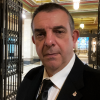
Nicholas was initiated into Freemasonry in 1989 in Stonewell Lodge No. 9137, Essex England (UGLE) and was Master in 1995, 2011 and 2016. He also joined other UGLE craft Lodges and is a PZ in the Royal Arch Chapter.
He acquired the title of The Square Magazine in January 2020 and oversees the technical running of the digital publication.
Recent Articles: skills
 7 Soft Skills Taught In Freemasonry Discover how Freemasonry nurtures seven irreplaceable soft skills—collaboration; Communication, Teamwork, Empathy, Flexibility, Conflict Resolution, Active Listening, and Trustworthiness. Explore how these essential human attributes, grounded in emotional intelligence and ethical judgment, remain beyond the reach of AI. |
 Freemasonry and Reskilling in the age of AI The article explores the challenges and strategies organizations face in reskilling their workforce in the era of automation and artificial intelligence. It highlights the need for companies to view reskilling as a strategic imperative and involve leaders and managers in the process. The article also emphasizes the importance of change management, designing programs from the employee's perspective, and partnering with external entities. |
 Ten Central Commandments or Principles of Freemasonry Embrace the wisdom of Freemasonry's teachings in your personal journey towards self-improvement and stronger leadership. By upholding virtues of integrity, compassion, and respect, and uniting these with a commitment to continuous learning and social responsibility, inspire change. Transform yourself and the world around you, fostering a legacy of positivity and enlightenment. |
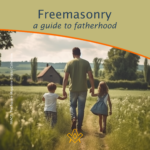 Freemasonry: A Guide to Fatherhood In the sacred halls of Freemasonry, fathers discover a hidden power to transform their parenting journey. With its timeless values, supportive community, and life-enriching teachings, Freemasonry empowers fathers to provide a moral compass, foster self-improvement, build stronger connections, and embrace the confidence and wisdom needed to navigate the complex realm of fatherhood. |
 Courage as a core value in Freemasonry Freemasonry, a revered fraternity, prioritizes virtues like honesty and charity. However, courage is foundational. From Plato to Maya Angelou, courage is vital for other virtues. Freemasonry's teachings, referencing events like Gettysburg, emphasize diverse courage forms. In today's divided world, Masons promote and exemplify courage, understanding its importance in facing challenges. |
 How Freemasonry Cultivates Ideal Entrepreneurial Traits Freemasonry's cryptic rituals hold timeless lessons for building entrepreneurial greatness. Through tests of passion, vision and skill, Masonic teachings forge ideal traits like grit, creativity and alliance-making needed to seize opportunity and elevate enterprises. The right commitment unlocks code for entrepreneurial success. |
 What you see praiseworthy in others "What you see praiseworthy in others, carefully imitate, and what in them may appear defective, you will in yourself amend". This passage of Masonic ritual (Taylors Working, Address to the w |
 How to Learn Ritual with a Learning Disorder So what do you do when faced with that little blue book? Most Masons when first looking at the ritual book can understandably be fazed – the tiny print, the missing words, the questions and answers! Learning ritual can be a challenging task for anyone, especially individuals with learning disorders, but it is not impossible. Here are some tips to help make the process easier. |
 A "mind palace", also known as a "memory palace", is a technique for memorizing and recalling information. How would your life change if you could remember anything and everything? Discover the 'Mind Palace' and all will be revealed. |
 What is leadership and who does freemasonry help develop those skills needed to be a better leader |
 A story of the 'Ruffians' – those individuals whose paths cross ours, who feel entitled to seize and consume the property of others that they have not earned. A lesson to build character to be a better citizen of the world. |
 Now we are back in the Lodge room once again, maybe it is time to review how we learn and deliver ritual and look at different ways of improving that process. |
 Making an advancement in Masonic Knowledge can become far easier when you 'learn how to learn'. |
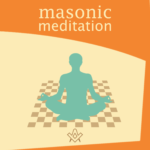 Learn how to practise Masonic meditation in a busy world with all its care and employments |
 Struggling to learn your ritual? Become a 5-Minute Ritualist with the aid of a book of the same name. |
 Day in the life of a Freemason As we start a new year, maybe start it with a new habit? |
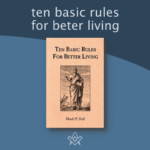 Ten Basic Rules For Better Living Ten Basic Rules For Better Living by Manly P Hall |
 How can we use masonic leadership skills to avoid confrontational situations? |
 How the Trivium is applied to Critical Thinking - {who, what, where, when} - {how} - {why} |
 The Seven Liberal Arts - why 'seven', why 'liberal', why 'arts'? |
 How to improve your public speaking skill with 6 techniques |
 Do you need to speak in public, or present Masonic ritual without notes ? |
 What are logical Fallacies and how to spot them |
 Share one easy tip to learn masonic ritual; Some good tips from Facebook followers |
 How can we use the 7 secrets of the greatest speakers in history |
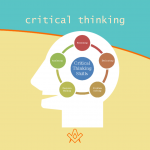 What is a critical thinker and what are their characteristics? |
 Share one personal skill Freemasonry helped you to improve? How can we make practical use of the lessons taught in Masonic writings? |
 An introduction to the art of public speaking - speak with confidence |
 Seven Liberal Arts and Sciences What do you know about Seven Liberal Arts and Sciences |
 Three Words That Will Change Your Life This article discuss a common situation found in many lodges - a difficulty in holding a conversation with a stranger. |
 Al - Khwarizmi live c750 - c820 is credited as being the father of Algebra, being asked what is Man, give his answer in an algebraic expression |
masonic knowledge
to be a better citizen of the world
share the square with two brothers

click image to open email app on mobile device







